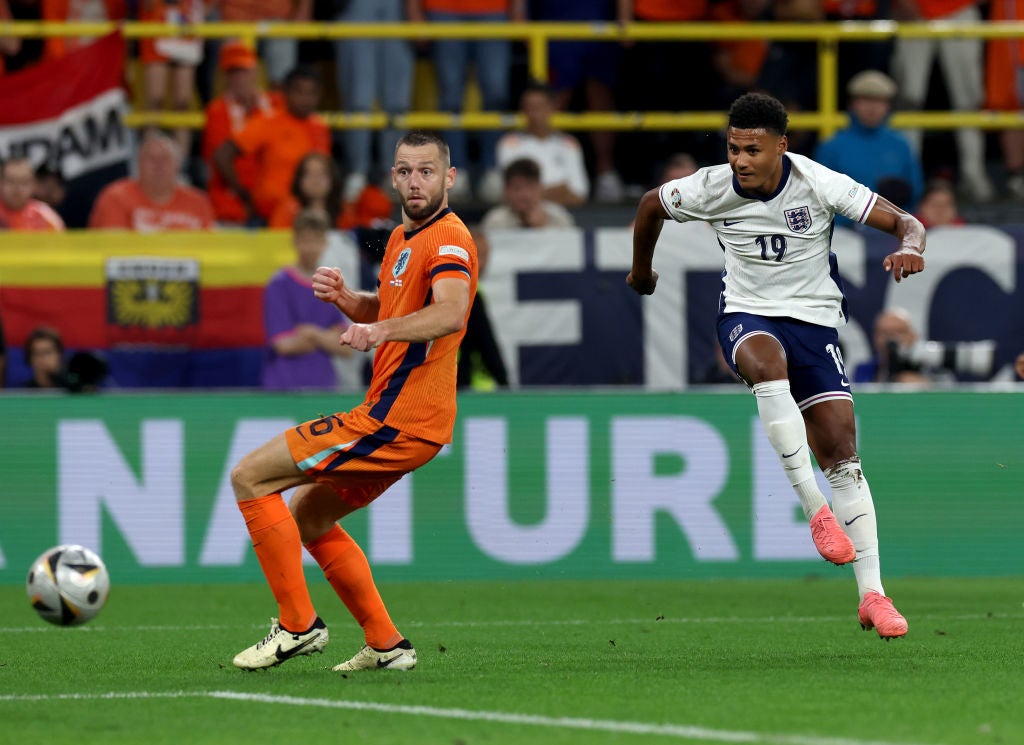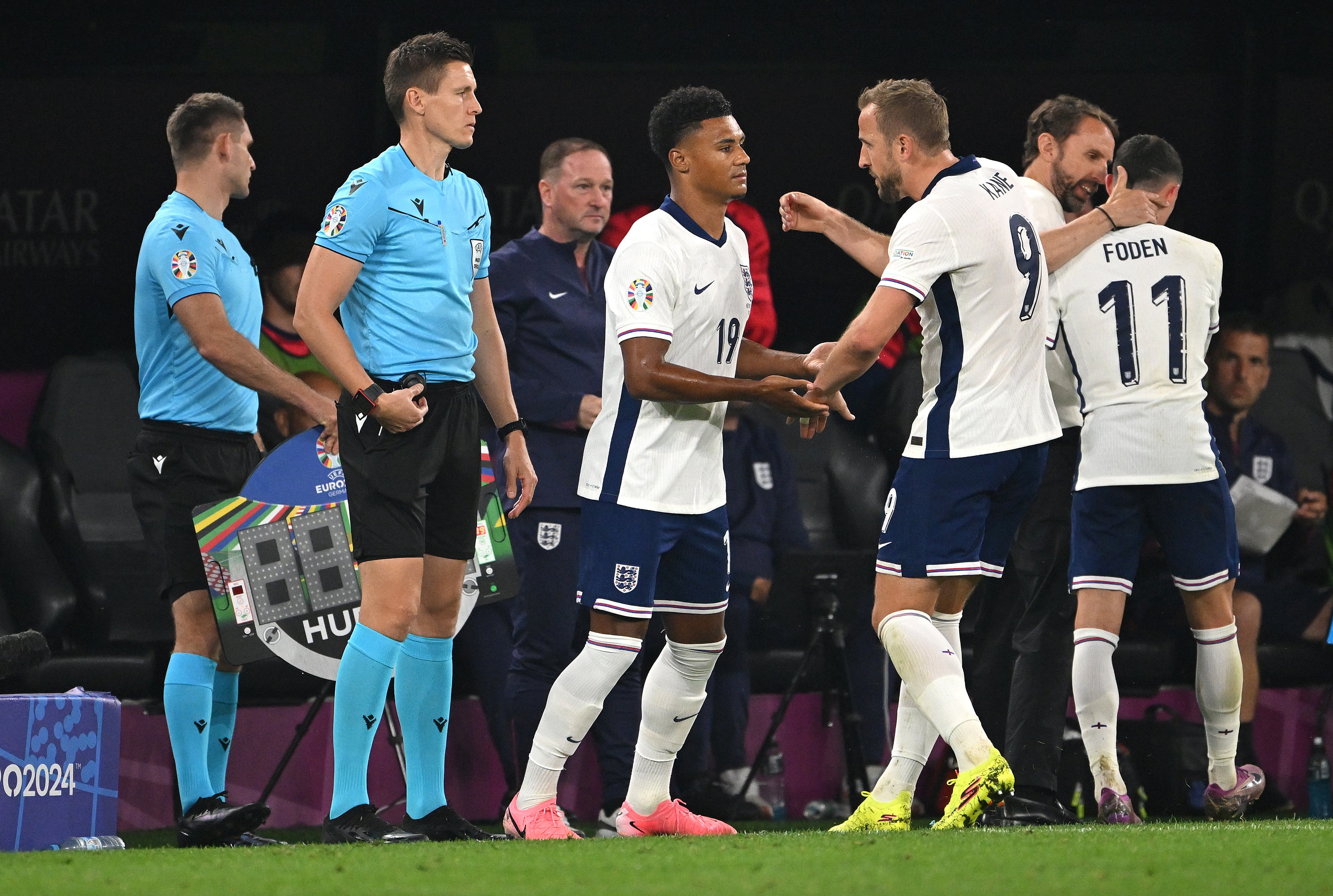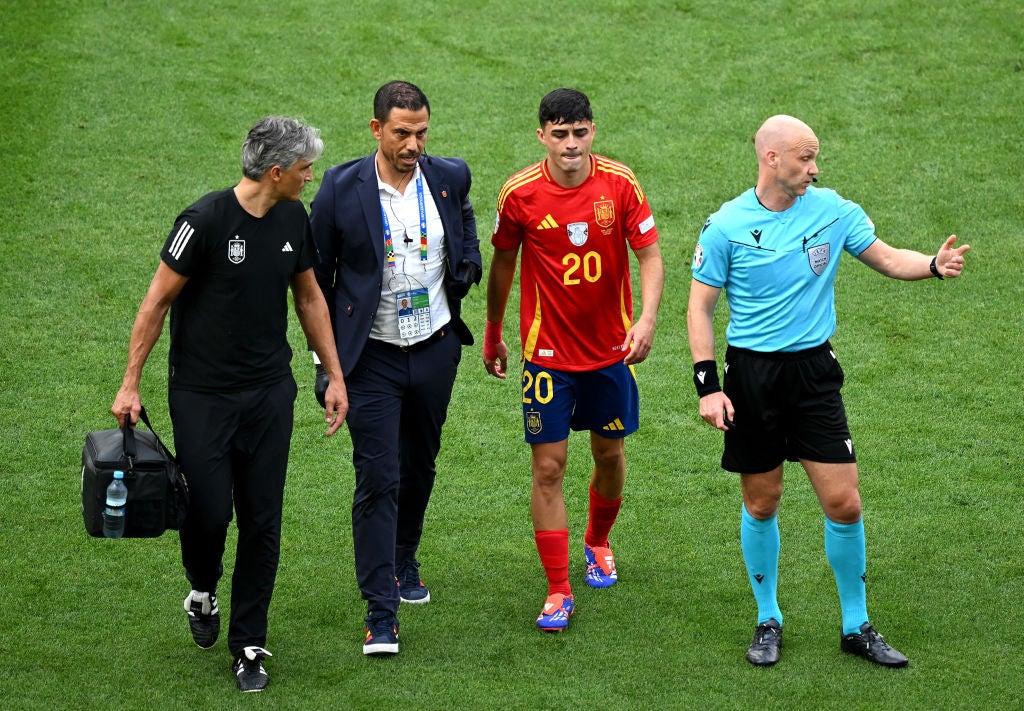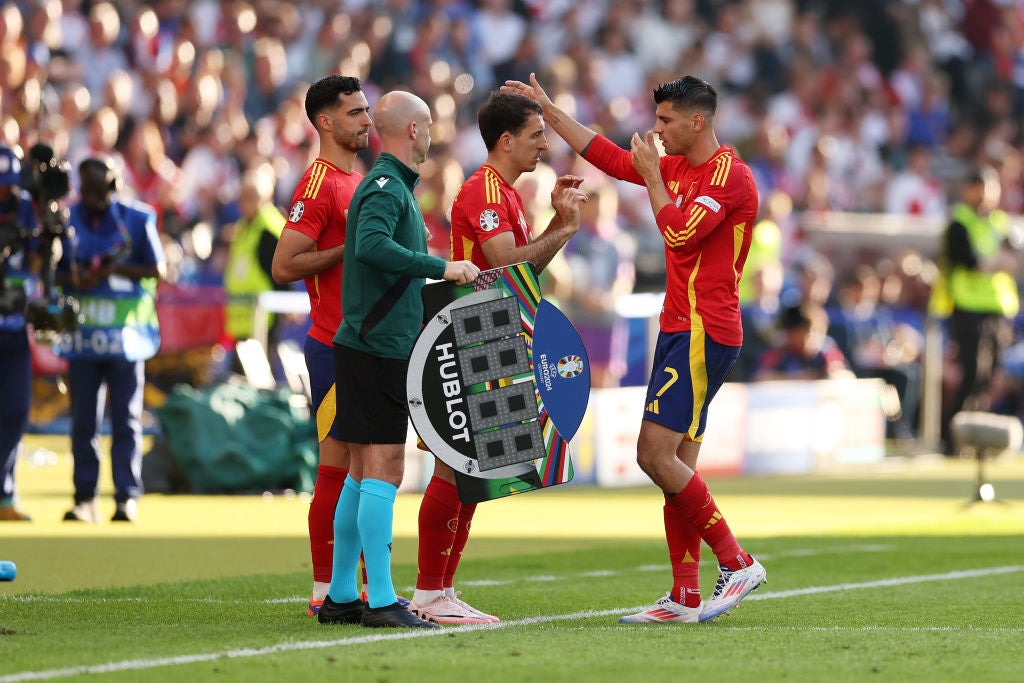It’s not about who starts Euro 2024 final, it’s who finishes it - and England can reimagine their attack
Gareth Southgate’s subs have been the turning point more than once. Can Spain’s options do the same?

Your support helps us to tell the story
From reproductive rights to climate change to Big Tech, The Independent is on the ground when the story is developing. Whether it's investigating the financials of Elon Musk's pro-Trump PAC or producing our latest documentary, 'The A Word', which shines a light on the American women fighting for reproductive rights, we know how important it is to parse out the facts from the messaging.
At such a critical moment in US history, we need reporters on the ground. Your donation allows us to keep sending journalists to speak to both sides of the story.
The Independent is trusted by Americans across the entire political spectrum. And unlike many other quality news outlets, we choose not to lock Americans out of our reporting and analysis with paywalls. We believe quality journalism should be available to everyone, paid for by those who can afford it.
Your support makes all the difference.Super subs. Late winners. Drama until the last. England’s journey through Euro 2024 has been about the collective, Gareth Southgate - and just about every post-match narrative since the last 16 - has been keen to reaffirm.
It can lead several conclusions to be drawn, depending on your perspective: a strong squad, perhaps? The wrong tactics or selections, for others. Either way, it is undeniable that England are finishing games better than they’ve started them, or finishing the tournament better than they started it.
But if the substitutions and in-game changes are of paramount importance to one team, so must they be to another: Spain themselves have a deep squad, one which Luis de la Fuente rotated to its fullest extent in their final group-stage game, one they’ve relied upon in the knockouts too as suspensions and injuries hit, particularly in the semi-final.
Of course, there’s every possibility - it’s a game of football, after all - that there are two or three early goals and the game is done, subs almost irrelevant, one team en route to glory and with a defensive second half. But the chances of that occurring seem low, with a final often tight, tense and full of moments rather than magic.
So who has the advantage if it goes the distance and the subs have a part to play?
The evidence at the Euros so far suggest two very different outlooks.
For England, offensive substitutions have made them more energetic, play with a better tempo, more capable of different build-up routines. They have a deep collection of alternatives in that regard, both like for like - Cole Palmer for Phil Foden, say - and stylistically different - such as Ollie Watkins replacing Harry Kane.
In a match situation where they are chasing, that is probably to England’s benefit. They are able to inject serious amounts of pace, creativity and goalscoring or solution-based players, even if Gareth Southgate has left it late to use them so far and not even utilised his full allowance of changes.

On the other hand, whether they have the options to lock down defensively once in front is still up for debate, largely because other than for about 150 seconds in the semi-final, they’ve not been in a position to do so when making an initial batch of subs. Against Slovakia they made two changes in extra time after going 2-1 up, but they certainly didn’t shut out their rivals entirely for the 15 minutes afterwards.
As such, being in the lead is obviously the objective, yet will represent a very new challenge for the Three Lions in this tournament - if it happens.
For Spain it has so far been the reverse, with one exception - and even that has now been removed from the equation.

Dani Olmo has been sensational throughout, but he was the reserve No10 and general attacking game-changer, with Pedri starting until his injury. Now Olmo is in, one high-quality reinforcement is removed from De la Fuente’s pool. They have others, to be sure.
But where England can reimagine different parts of their attack, Spain’s might just take away from their biggest strengths.
Lamine Yamal and Nico Williams have been revelations on the wings, their technical ability allied to great pace meaning they threaten defences from all angles - but Spain have no fast alternative on the bench. They have no third direct-running, ball-carrying wide options.
Mikel Oyarzabal is now more centre-forward than winger and wasn’t a sprinter to begin with; Ferran Torres is a goalscorer but one based on clever movement and positioning rather than pace. Ayoze Perez, Joselu and the rookie attacking midfielder Fermin Lopez do not base their game around speed - and nor does stand-in 38-year-old winger-turned-full-back Jesus Navas any longer.
In short, Spain making attacking subs changes their approach and as was evidenced against Germany, denies them their out-ball, their counter-attacking threat and their non-stop ability to force opposition full-backs to stay deep rather than join the attack. It’s easy to forget a few games further along but the hosts had them on the run after those changes were made and Florian Wirtz’s equaliser; pressing their advantage was their route to victory, not sitting back off as they did in extra time, which instead allowed La Roja to restart their own slower, dominant pressure spells and eventually score a late winner.

Once they are ahead, though, De la Fuente possesses no end of controlling options, has no shortage of defensive barricades and will not run out of players to block up the centre of their own half of the pitch, where England have spent so much time at these Euros passing fruitlessly and slowly from one channel to the other.
It’s a strange symmetry where both teams’ bench options look more effective if and when Spain are in front - yet that scoreline naturally wouldn’t suit England. If it’s the Three Lions who lead with time ticking away there’s no genuine evidence to suggest either team can reasonably think their options will swing the remainder of the game their way - but Southgate can still make switches to be more effective on the counter, looking to finish the game rather than see it out.
That, perhaps, is a minor advantage to hold for only one scenario of several which could emerge. Yet in a tightly contested final, every edge can count - even with only minutes to play, as England have already shown.
Join our commenting forum
Join thought-provoking conversations, follow other Independent readers and see their replies
Comments